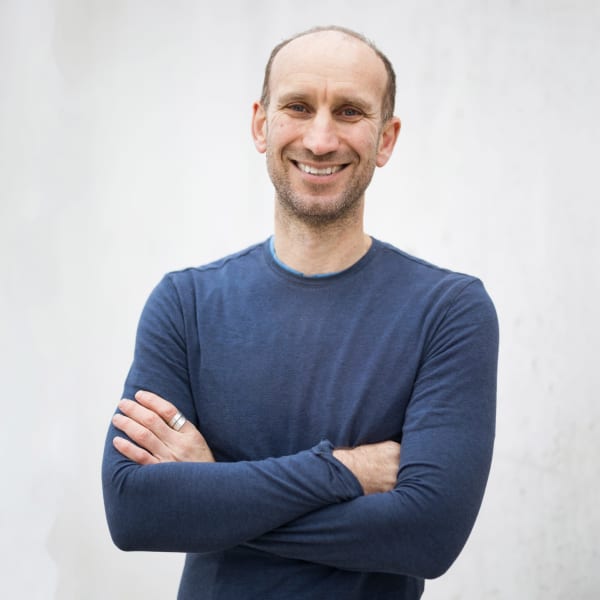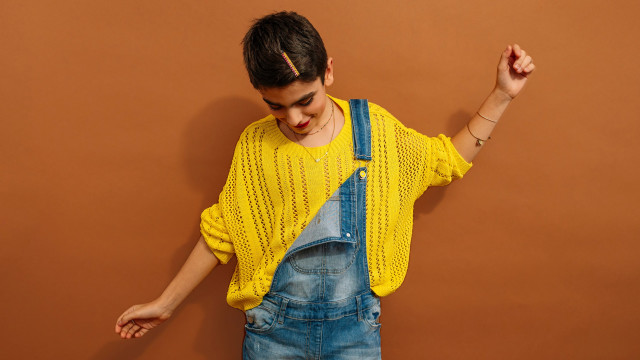To Find Happiness, Stop Chasing It

Our culture knows very little about true happiness. We are taught that the person with the most toys wins, but this way of thinking and living actually creates lots of unhappiness. Happiness cannot be found in an object or in the future. The moment we get that object, and then get used to it, it loses its thrill. The moment we get to that future, we want to be in the next future, where happiness really is.
But what if there was another way?
A Sustainable Source of Happiness
Growing up, I didn't put much energy into trying to become a happier person. I didn’t have to; I lived in the suburbs of Vancouver, surrounded by a tight group of family and friends. I was very involved in sports, liked school, and had lots of fun in general.
It wasn't until I started meditating that I got more in tune with all the suffering in the world, and started caring about this suffering deeply. I also started looking at happiness from different angles, asking myself if there could be a higher form of happiness, and if the happiness I got from the normal pleasures of life, that most people consider sources of joy, really made me happy. I started considering these joys more as ephemeral experiences or objects, and noticed how everyone – myself included – constantly chased after them, never quite satisfied.
We all seemed to be living under a spell, believing that if we had this thing, and that experience, and the love of this person, and could just put all this together in some sort of perfect picture, we would be happy.
Meditation showed me how to get away from trying to find happiness in an object, situation or experience, and that helped me realize "I don't have to create happiness". Developing a meditation practice may be powerful in helping you realize the beauty that already exists in your life.
When you take a moment to sit in silence and let the mind settle, you start noticing there's a level of love, peace, and pleasantness always accessible. You can begin to learn how to stop worrying about the past and thinking about the future. When this becomes your baseline, you can potentially be happy all the time.
Gratitude may be powerful in helping you cultivate more happiness in your life, try this class, Boost Your Mood with Gratitude, by meditation teacher Almeiri Santos, to experience how.
But What is Happiness, Anyway?
When the economy collapsed in 2008, a close family member lost his job and was very stressed about it. This was completely understandable, as he had lots of expenses to cover every month. He also shared with me that he had half a million dollars in savings. I remember how shocked I was when I found out he had this amount of money in the bank, and how interesting I found it that he was stressed and unhappy about money.
That exact same week, I had reached the financial milestone of having a thousand dollars in my bank account for the first time in a very long time, and felt like the richest man in the world. I truly thought that having a thousand dollars meant that things were going really well for me. And who could say this wasn’t true? I was living at a retreat center at the time, so I had very few expenses and could use that extra money to maybe go on a short vacation. I felt like I had no worries in the world!
While I was enjoying these feelings of abundance, my family member was looking at a drastically different amount of money in his bank account and thinking things were really tight for him. So, we can ask ourselves, what is wealth? Is it just a perception? And I think it's the same with happiness. Why are some people happy and others are not? Clearly this is not dependent on their external circumstances. There’s something deeper at play.
Erasing the Chalkboard and Starting Anew
The happiest I’ve ever been was a few years ago, when I went on a three-year meditation retreat and quite literally stepped out of the world as I knew it. I noticed big changes happening inside myself after a year of being there.
Meditating for such an extended period of time felt like a big physical and mental purification process. It gave me the opportunity to deal with some deeply rooted negative emotions and experiences that I – as most of us do – had just swept under the rug for most of my thirty something years of life. When you have nothing to do for three years other than meditate, these things start bubbling up to the surface of your mind, and in a way, you’re forced to deal with them because they stare at you all day.
Sitting with these emotions during my meditation, and acknowledging them one by one, was like slowly erasing the chalkboard and creating more inner space for positive experiences and emotions.
I started realizing how society had reinforced all the ideas I had about myself – about who I was as a partner, worker and man. Stopping this daily reinforcement allowed me to start painting my picture of who I wanted to be.
Feeling the Full Range of Emotions
I believe that we can all overcome negativity and suffering, reaching a state of enduring happiness. But while we’re in the process of getting there, we will experience all sorts of negative emotions, and negating them is not the right way to overcome them.
No one has ever taught that repressing an emotion is a pathway to happiness. Opening up to the full spectrum of human emotions leads to a breadth of experience that is profound and beautiful.
The idea is that you get to the point where you’re able to recognize a feeling, accept that you’re feeling it, and try to respond to it in a constructive way, and if possible, turn it around. When you do this, you’re not repressing it, but you’re also not expressing it in any way you want simply because you’re feeling it. This is the way we move forward.
The More You Give, The More You Get
I want to finish by saying this: happiness, in my view, is also the result of karma. This means that whatever I do is planting a seed in my mind that's going to ripen into an experience that's similar in the future. So, if I plant the seed of generosity, I will experience a similar amount of generosity in my own life at some point. If I’m dedicated to helping others be happier, I will plant the seed of happiness within, and sooner or later it will bloom.
Throughout my life, I’ve definitely noticed this direct correlation between people being nicer, kinder, and happier. But even if karma was not true and this was just mere coincidence, it seems to me that trying to treat people well, and finding your happiness in the happiness of others, is the most beautiful way you can live your life.
Learn how to train your attention to focus on the positive – regardless of the scope your emotions or circumstances – in this course, How to Train Your Attention by meditation teacher Earle Birney.
Header Photo: SoulStock/E+/Getty Images





